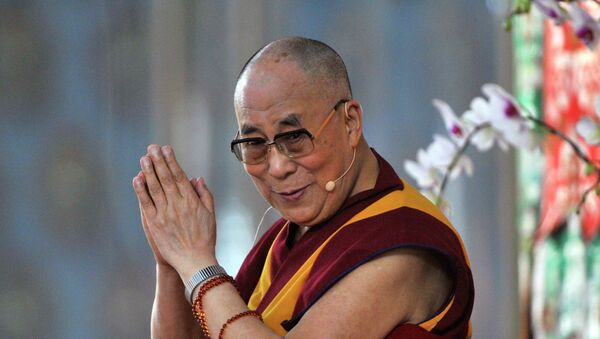China feels that the presence of the 81-year-old monk is a continual reminder of the independence of Tibet, a nation China invaded and occupied in 1950. Predominantly Buddhist Mongolia holds the exiled cleric in high regard.
During a telephone conversation Chinese Foreign Minister Wang Yi told his Mongolian counterpart, Tsend Munkh-Orgil, "The Dalai Lama's furtive visit to Mongolia brought a negative impact to China-Mongolia relations…We hope that Mongolia has taken this lesson to heart."
Wang also said that he hoped Mongolia would "scrupulously abide by its promise" not to re-invite the Dalai Lama.
Along with imposing fees on Mongolian commodity imports, China also postponed diplomatic talks and closed an important border crossing, resulting in major congestion.
Mongolia is in an economic recession, and, at the time of the spat, was negotiating a $4.2-billion loan from Beijing.
Al Jazeera correspondent Adrian Brown noted at the time, "Mongolia says these drivers spend hours, and in some cases days, waiting in the cold…Temperatures at night that can drop to minus 20 degrees Celsius."
Tsend said that he regretted the harm done to the relations between the two countries. Mongolia has maintained that the Nobel Peace Prize winner’s visit is not political.
Brown mentioned that "Mongolia firmly supports the one China policy, consistently holds that Tibet is an inseparable part of China, that the Tibet issue is China's internal affair."
The Dalai Lama is based in India, after fleeing Tibet in 1959 following a failed uprising against the invaders. The spiritual leader has consistently pointed out that he only seeks the liberation of his native Tibet, which was previously "peacefully liberated," according to Beijing, in 1950, by Communist Chinese military forces.




